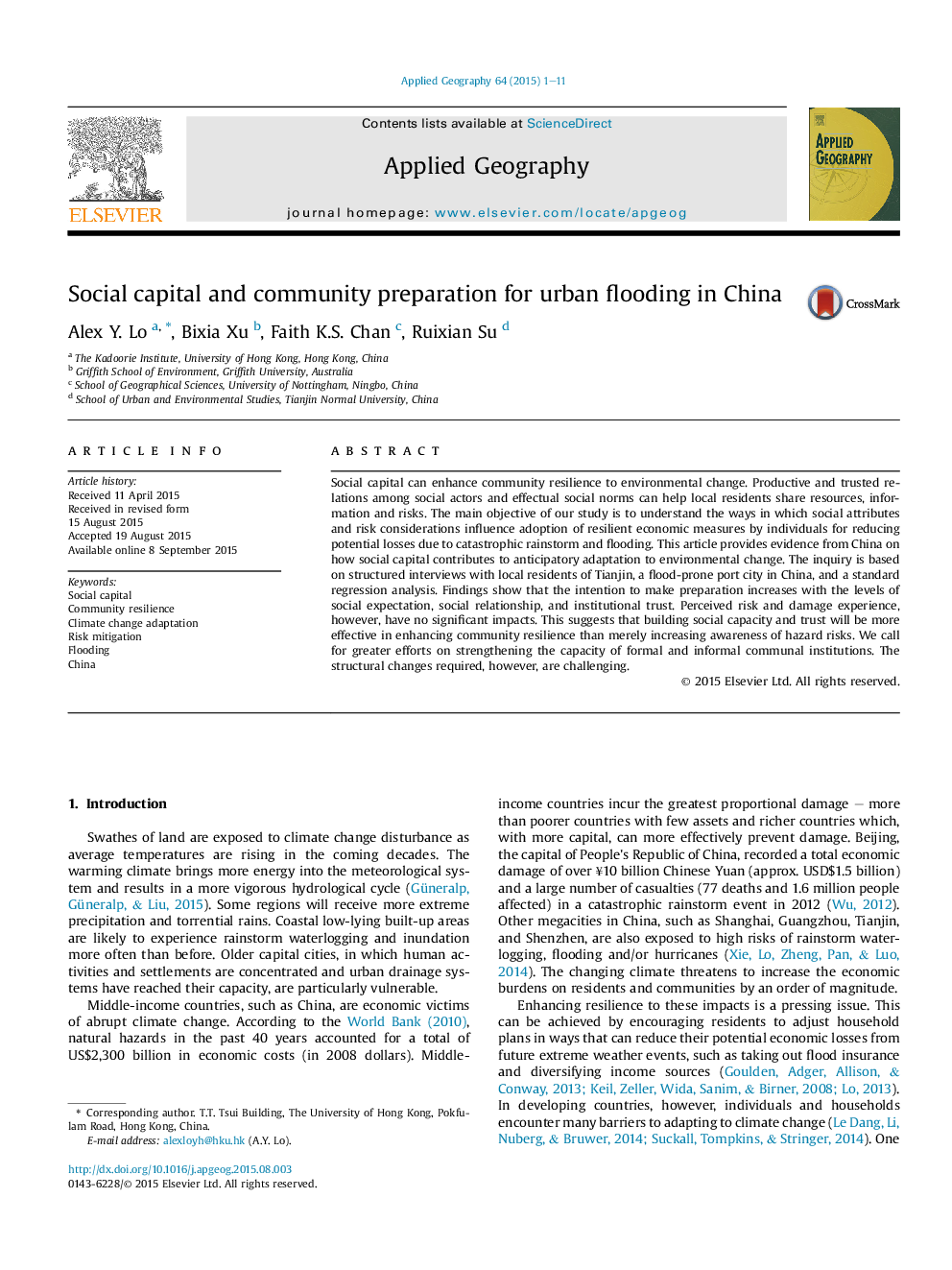| Article ID | Journal | Published Year | Pages | File Type |
|---|---|---|---|---|
| 83191 | Applied Geography | 2015 | 11 Pages |
•Social capital can enhance community resilience to environmental change.•We examine how it influences adoption of resilient economic measures by individuals.•We analyze how Chinese residents respond to the possibility of urban flood hazards.•Residents' intention to act increases with social capital, but not perceived risk.•Results support strengthening the capacity of communal institutions in China.
Social capital can enhance community resilience to environmental change. Productive and trusted relations among social actors and effectual social norms can help local residents share resources, information and risks. The main objective of our study is to understand the ways in which social attributes and risk considerations influence adoption of resilient economic measures by individuals for reducing potential losses due to catastrophic rainstorm and flooding. This article provides evidence from China on how social capital contributes to anticipatory adaptation to environmental change. The inquiry is based on structured interviews with local residents of Tianjin, a flood-prone port city in China, and a standard regression analysis. Findings show that the intention to make preparation increases with the levels of social expectation, social relationship, and institutional trust. Perceived risk and damage experience, however, have no significant impacts. This suggests that building social capacity and trust will be more effective in enhancing community resilience than merely increasing awareness of hazard risks. We call for greater efforts on strengthening the capacity of formal and informal communal institutions. The structural changes required, however, are challenging.
